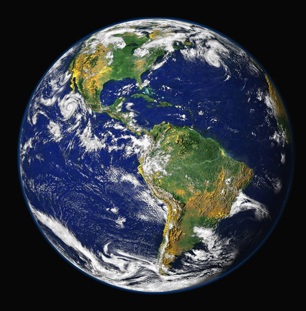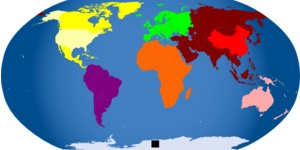Geography
“There are thousands of ways to take action.” Greta Thunberg
At Kates Hill Primary School, through becoming Geographers, we are passionate about nourishing and enriching lifelong learning about the beauty of the Earth, the ever-changing power it has and the impact of human activity on the world around us. Pupils at our school will learn an appreciation and love for the beauty of the natural world, become responsible and global citizens, develop a shared responsibility for their role in society and create a caring and conscientious attitude towards others and our environment. They will gain an understanding of the ways of life and cultures of people, as well as the process of change and reflecting on global issues.
Our Geography curriculum is designed for children to develop their knowledge, as well as Geographical skills. Each year, pupils start by zoning in, becoming familiar with their local area and the country in which we live in, before zooming out to explore the wider world. Pupils will develop an understanding of physical and human geographical processes and how they are connected, exploring similarities and differences on a regional, national, international and global level.
Key features of our Geography curriculum:
- Use of Geographical fieldwork to discover first-hand experiences of the features studied and bring learning to life.
- Regular opportunities for children to work as a team to discover, debate and come to decisions regarding key geographical concepts.
- Tasks designed for collaboration and decision-making to promote problem-solving, self-belief, communication and geographical thinking.
- High expectations for all learners, in order to ‘Dream Big’ with targeted support and critical thinking challenge questions to spark curiosity and deepen understanding.
- Opportunities for children to explain their thinking, formulate geographical questions and discover the answers for themselves through enquiry-based learning.
- Repeated skills that also build on each other over a period of time, in order for children to become confident in becoming Geographers.
Intent
Our Geography curriculum aims to inspire pupils to develop curiosity and fascination, in regards to the world we live in and its people, which will remain with them throughout the rest of their lives. Our Geography curriculum aims to develop an understanding of interaction between human and physical processes, landscapes and environments and will encourage children to think critically about what they see. Leanrers will have opportunities to explore changes over time, make connections and comparisons and identify trends, patterns and correlations. Through exploration of our locality and the United Kingdom in the Autumn term, learners will develop an understanding of the physical and human characteristics of our local area, before further exploration of the wider world. Furthermore, pupils will be given opportunities to explore different perspectives and understand that people create different interpretations of the same event.
As supported by the Geographical Association, we aim to focus on the following areas within the Geography curriculum:
- The physical world: the land, the water and ecological system, landscapes; and the processes that bring about and change them
- Human environment: societies, communities and the human processes involved
- Interdependence: linking the physical world and human environment and understand the concept of sustainable development.
- Place and Space: recognising similarities and differences across the world and developing knowledge and understanding of location, interconnectedness and spatial patterns.
- Scale: the ‘zoom lens’ through which the subject matter is ‘seen’, and the significance of local, regional, national, international and global perspectives.
- Young people’s lives: using their own images, experiences, meanings and questions to become active agents in their learning and understand how it relates to them.
Implementation
We aim for learners to view themselves as Geographers, rather than learning the subject of Geography. Geography is a subject of discovery and through exploration, enquiry and developing geographical skills; children will be able to assemble information about the world.
At our school, children learn fundamental concepts through a range of high quality resources such as photographs, maps, visual stimuli and VR Headsets, in order to inspire, motivate and support the learning process. First hand experiences and the use of Geography fieldwork is embedded throughout year groups to develop our trust values of ‘learning that inspires’ and give our learners a wide range of divergent opportunities. Building upon this, when teaching Geography, we aim to embed aspects of Geographical Enquiry to develop a constructivist approach to learning, in order for children to make connections with their learning and discover this for themselves. This means students are actively involved in making sense of the world around them, as well as connecting new knowledge to what they already know and to existing schemes, in order to construct new meanings. This allows children to socially construct ideas, create learner autonomy and provide the foundations for life-long learning. This means that new information is built into and added onto children’s current knowledge, understanding and skills, building learners to integrate new knowledge with the old.
By a range of carefully sequenced Geographical units of enquiry, organised in a coherent and linear approach, children will progressively build upon both knowledge and skills to contribute to the overall aims of the Geography curriculum. Each year group will have three units of Geography to build upon each year, which allows them to have many opportunities across the year to embed skills and develop knowledge. As we deliver a knowledge-enhanced curriculum, each unit has a clear outline of the knowledge and skills learners will develop, which contribute to the overall curriculum intent. Within topics, where appropriate, there will be opportunities to explore, reflect, discuss and debate current world issues. Combing this with Geography fieldwork and enquiry-based learning, learners will have a deeper understanding of geographical concepts, through discovery and investigative opportunities. With a focus on subject specific vocabulary, as well as linking English with the Geography units studied, children will be able to progressively build on their knowledge and have a plethora of words linked to each topic. Our whole school oracy focus underpins our vocabulary-rich Geography curriculum. Teachers use questioning and provide opportunities for discussion and investigation to support the development of vocabulary, which is explicitly taught and modelled by teachers in every lesson. Key geographical knowledge and language is revisited frequently, to make learning memorable, relevant and easy to retrieve.
Through critical thinking and challenge questions, children are encouraged to ‘dream big’ by questioning concepts. The content and tasks are designed to provide appropriate challenge to all learners, in line with our commitment to inclusion. This is broken down for each year topic to ensure that the knowledge and skills is explicit and progressively builds upon each other. Concepts are broken down into small steps and modelling is used, in order to avoid cognitive overload. Modelling, writing frames and the use of InPrint is used to support SEND children further, as well as active learning opportunities to bring learning together and provide tactile experiences.
Each individual lesson has content that is differentiated between, and within, year groups so that learning is age-appropriate and high expectations are maintained. Children record their learning journeys in a way that is memorable to them at the end of each unit or lesson and the use of practical and engaging activities are integrated to develop active learning and ensure the Geography curriculum can be accessed by all. In order to ensure that knowledge is part of the long-term memory, retrieval practice is used at the start of each lesson, as well as links made to previous learning and units studied, to create building blocks of learning.
Impact
Through our carefully designed curriculum, by the time children leave Kates Hill Primary will:
- Be able to navigate using maps, compass directions and positional and directional language.
- Make decisions and provide justifications for these.
- Have an awareness of the world and a love of natural beauty.
- Gather and present information in different ways.
- Formulate relevant geographical questions.
- Analyse information, in order to draw conclusions and identify patterns and trends.
- Become knowledgeable citizens about the world around them and understand their role.
- Use and understand geographical language with confidence.
- Have an understanding of our locality and contemporary challenges the world faces.
- Explain the physical and human features of the countries studied and the impact of these.
- Make connections across areas of the Geography curriculum.
Assessment is conducted against the skills and knowledge for each unit. This can be completed using a variety of strategies, such as:
- Questioning during lesson time.
- Marking children’s written work, as well as verbal feedback.
- Interviewing pupils across the school about their learning.
- Kahoot quizzes and opportunities for children to draw their learning together.
Developing Cultural Capital through Geography
In Geography, we aim to enrich pupils’ cultural capital by developing their understanding of the world, its people, places, and environments. Through a well‑sequenced and engaging curriculum, geography equips children with the knowledge, experiences, and perspectives they need to make sense of the world around them and their place within it.
We do this through:
• A broad, balanced and ambitious curriculum, where pupils explore a range of local, national and global places. This helps children to develop secure knowledge of countries, continents, oceans, and regions, alongside key physical and human geographical features.
• Understanding the local area and its wider context, through meaningful fieldwork, local studies, and first‑hand experiences. This builds a sense of place, identity and pride in our community.
• Engaging with global issues, such as climate change, sustainability and natural disasters. We encourage pupils to think critically about the challenges facing the world and the role they can play as responsible global citizens.
• Developing geographical skills and vocabulary, including map reading, fieldwork, data collection, and the use of digital tools such as atlases, aerial photographs, and virtual field trips. This empowers our pupils to confidently explore and interpret the world.
• Making purposeful cross‑curricular links with subjects such as history, science, RE and English, deepening pupils’ understanding of people, place and environment and how these elements shape human experience.
By engaging with geography, pupils gain the knowledge, language and experiences needed to participate in cultural conversations, understand global diversity and interdependence, and develop aspirations and curiosity about the wider world beyond their own community.



